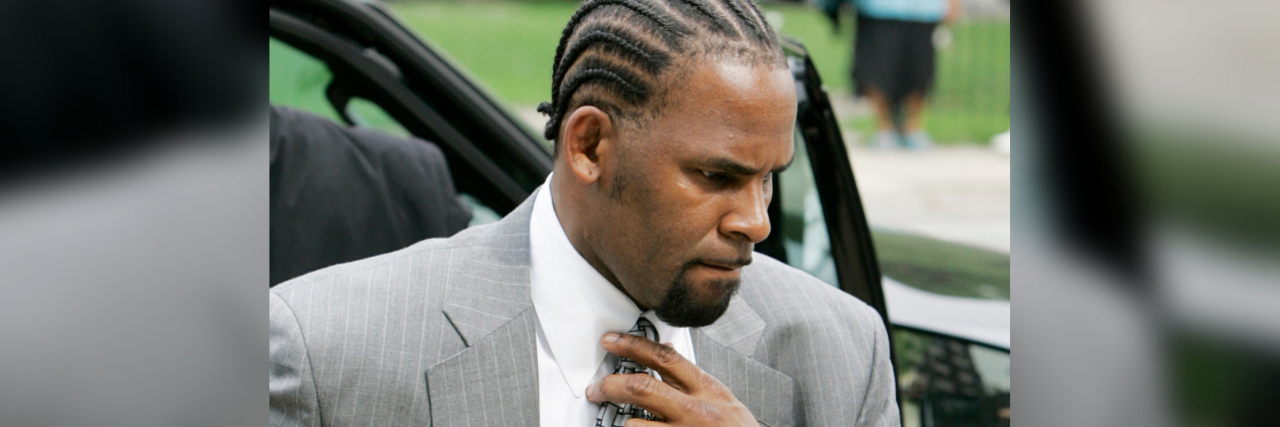Being Abused as a Child Is Not a Free Pass to Abuse Others
Editor's Note
If you’ve experienced sexual abuse or assault, the following post could be potentially triggering. You can contact The National Sexual Assault Telephone Hotline at 1-800-656-4673.
On June 29, R&B singer R. Kelly was sentenced to 30 years in prison for conviction on charges of federal racketeering and sex trafficking. Defense attorneys allegedly requested that District Court Judge Ann Donnelly consider Kelly’s own experiences with years of sexual abuse at the hands of a family member and landlord as a factor in his sentencing. According to CNN, Judge Donnely’s response was, “It may explain, at least in part, what led to your behavior… It most surely is not an excuse.” I wholeheartedly agree with her.
Let me be clear, being abused as a child is not a free pass to abuse others. I cannot tell you how frequently I have heard this argument leveraged as some kind of explanation as to why someone may have acted abusively toward another human being. As a survivor of sexual abuse, emotional abuse, and neglect, my own family has attempted to deflect my anger about my abuse by pointing out how my abusers also suffered abuse as children. It’s invalidating and it only serves to perpetuate self-blame and shame.
It’s also an insidious way of silencing survivors of abuse and forcing the narrative of forgiveness. Holding a perpetrator of abuse accountable for their actions is incredibly hard to do if you are simultaneously worrying about their trauma. Now I’m being saddled with the damage that has been done to me and that which has been perpetrated upon my abuser? That’s not OK. It doesn’t allow for healing to occur because I am being denied the opportunity to focus solely on myself and my feelings about what was done to me.
There’s also a dangerous narrative being perpetuated that reinforces the victim to perpetrator pipeline. While some evidence suggests that those who have experienced abuse are at a higher risk of becoming an abuser, this is by no means a guarantee nor is it the only factor that goes into whether or not someone will go on to victimize others. In fact, according to an aggregate of studies on male perpetrators of sexual abuse, only 23% of perpetrators had experienced sexual abuse with similar physical contact in childhood. The vast majority of those who have been abused are not being abused by victims. To suggest a one-to-one correlation stigmatizes survivors which can negatively impact their ability to seek out the appropriate treatment and support.
For the most part, survivors of abuse can and do go on to be non-offending members of society with or without seeking mental health services to combat the damage their own abuse may have caused them. The decision to act upon urges to violate another human being is a pathological one that indicates a lack of moral integrity and a complete disregard for the humanity of others. It isn’t solely a commentary on what happened to someone. A myriad of factors can and do contribute to becoming an offender, ranging from nature to nurture, and no two offenders share the exact same combination of influences.
As I have noted before, two things can be true. One can be empathetic toward the suffering of someone else while simultaneously holding them accountable for their own actions. It’s up to each and every one of us to understand the ways in which our unique trauma histories are impacting others. If we are aware of ways in which we may be harming someone else, the onus is upon us to do the necessary work on healing from our own trauma so that we do not continue the cycle of dysfunction. If we don’t, and we go on to abuse or hurt someone else, we deserve to face the consequences of those actions. And in R. Kelly’s case, justice has indeed been served.
Flickr image via WBEZ (AP)

